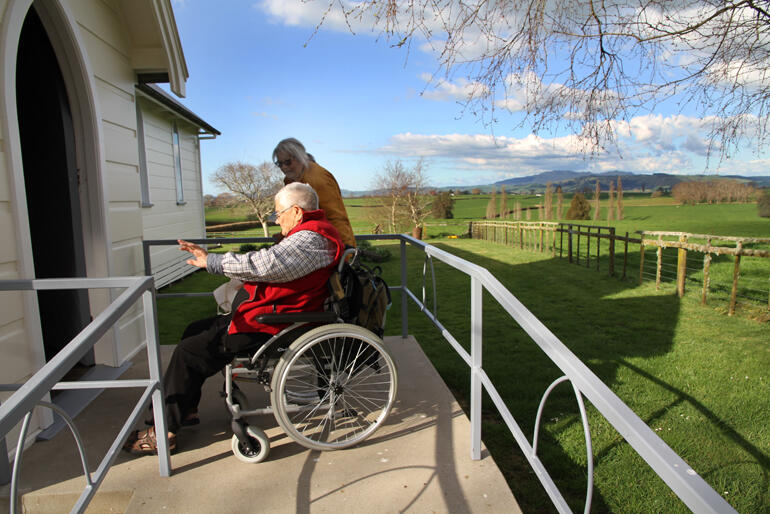
New resources to help church communities welcome and include all people with diverse needs are out now from the Anglican Disability Network via Anglican Disability Ministry Educator Rev Vicki Terrell.
The Anglican Disability Network has produced a new set of Advent resources in line with its theological definition of disability that they hope will become a foundation for all churches' approaches to disability and inclusion as a 'whole community' way of being.
The theology of disability recognises that some ways of seeing disability create stigma that can exclude people from full participation in the life of the church – the opposite of God's vision of the beloved community. Instead it offers a list of affirmations that churches can adopt to enhance the inclusiveness of their communities. One reads simply:
"We affirm that we want to live out the Gospel in ways that are mana-enhancing for all."
Another reminds churches to put their resources into making sure everyone knows how to operate as an inclusive community.
"As a church we commit ourselves to the principles of manaakitanga as we foster a culture of full inclusion. We are committed to pathways of education and advocacy to nurture a culture of faka'apa'apa / highest respect and tauhi va' / healthy relationships for our mutual flourishing."
The disability theology's focus on welcome, inclusion and manaakitanga makes clear that disability is not contained in the impairments of individuals, but instead arises when communities fail to adapt and accommodate difference, which in turn disables individuals.
The full theology of disability is online here.
The Anglican Disability Network has 10 tips to upgrade your church's welcome this Advent and Christmas.
1. If possible, ensure people using walkers and wheelchairs have a place where they can sit with whānau and friends if they choose.
2. Have people ready to offer hospitality and sit alongside newcomers.
3. Make sure the person leading any event invites people to stand or sit as they are comfortable and explains that children making noise is okay.
4. Make sure people can see and hear easily. eg. using microphones, large print and avoiding fast flickering images.
5. Invite people to come closer to the activity if they choose to: e.g. to be part of the nativity scene or sit next to the crib.
6. If you can, create separate spaces for being noisy and being quiet.
7. If it is not possible to provide separate spaces, encourage times of quiet between activities.
8. If people need a quiet space, indicate where that is and make sure it is safe.
9. Create a quiet space or a separate room with pillows, cushions beanbags, picture books and dim lighting.
10. Have an assigned person (with up to date safeguarding training) to welcome people to the quiet space.
Read more inclusive community ideas from the Diocese of London
Visit the Anglican Disability Network website to download posters and more resources for Advent 2025

















Comments
Log in or create a user account to comment.